Related Research Articles
Economics is a social science that studies the production, distribution, and consumption of goods and services.

Quantum mechanics is a fundamental theory in physics that describes the behavior of nature at and below the scale of atoms. It is the foundation of all quantum physics, which includes quantum chemistry, quantum field theory, quantum technology, and quantum information science.
The Julian day is the continuous count of days since the beginning of the Julian period, and is used primarily by astronomers, and in software for easily calculating elapsed days between two events.
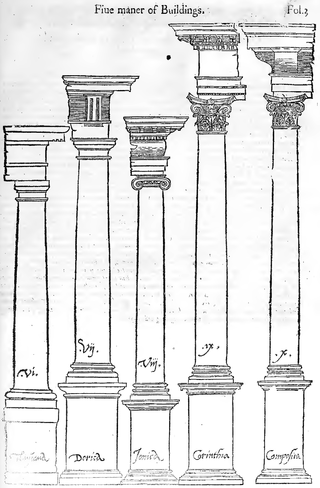
Classical architecture usually denotes architecture which is more or less consciously derived from the principles of Greek and Roman architecture of classical antiquity, or sometimes more specifically, from the works of the Roman architect Vitruvius. Different styles of classical architecture have arguably existed since the Carolingian Renaissance, and prominently since the Italian Renaissance. Although classical styles of architecture can vary greatly, they can in general all be said to draw on a common "vocabulary" of decorative and constructive elements. In much of the Western world, different classical architectural styles have dominated the history of architecture from the Renaissance until World War II. Classical architecture continues to inform many architects.
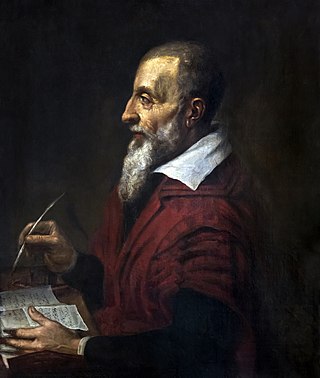
Chronology is the science of arranging events in their order of occurrence in time. Consider, for example, the use of a timeline or sequence of events. It is also "the determination of the actual temporal sequence of past events".

Tragedy is a genre of drama based on human suffering and, mainly, the terrible or sorrowful events that befall a main character. Traditionally, the intention of tragedy is to invoke an accompanying catharsis, or a "pain [that] awakens pleasure,” for the audience. While many cultures have developed forms that provoke this paradoxical response, the term tragedy often refers to a specific tradition of drama that has played a unique and important role historically in the self-definition of Western civilization. That tradition has been multiple and discontinuous, yet the term has often been used to invoke a powerful effect of cultural identity and historical continuity—"the Greeks and the Elizabethans, in one cultural form; Hellenes and Christians, in a common activity," as Raymond Williams puts it.

In fiction, a character is a person or other being in a narrative. The character may be entirely fictional or based on a real-life person, in which case the distinction of a "fictional" versus "real" character may be made. Derived from the Ancient Greek word χαρακτήρ, the English word dates from the Restoration, although it became widely used after its appearance in Tom Jones by Henry Fielding in 1749. From this, the sense of "a part played by an actor" developed. Character, particularly when enacted by an actor in the theater or cinema, involves "the illusion of being a human person". In literature, characters guide readers through their stories, helping them to understand plots and ponder themes. Since the end of the 18th century, the phrase "in character" has been used to describe an effective impersonation by an actor. Since the 19th century, the art of creating characters, as practiced by actors or writers, has been called characterization.

Julius Caesar Scaliger, or Giulio Cesare della Scala, was an Italian scholar and physician, who spent a major part of his career in France. He employed the techniques and discoveries of Renaissance humanism to defend Aristotelianism against the New Learning. In spite of his contentious disposition, his contemporary reputation was high. Jacques Auguste de Thou claimed that none of the ancients could be placed above him and that he had no equal in his own time.
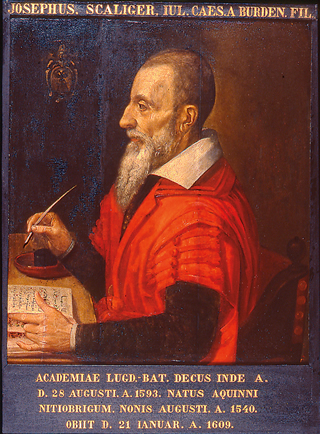
Joseph Justus Scaliger was a Franco-Italian Calvinist religious leader and scholar, known for expanding the notion of classical history from Greek and Ancient Roman history to include Persian, Babylonian, Jewish and Ancient Egyptian history. He spent the last sixteen years of his life in the Netherlands.

Ambarvalia was a Roman agricultural fertility rite, involving animal sacrifices and held on 29 May in honor of Ceres, Bacchus and Dea Dia. However, the exact timing could vary since Ambarvalia was a "fariae conceptivae" - a festival not bound to a fixed date.

Daniel Heinsius was one of the most famous scholars of the Dutch Renaissance.
Diegesis is a style of fiction storytelling which presents an interior view of a world in which the narrator presents the actions of the characters to the readers or audience.

Ancient Greek comedy was one of the final three principal dramatic forms in the theatre of classical Greece. Athenian comedy is conventionally divided into three periods: Old Comedy, Middle Comedy, and New Comedy. Old Comedy survives today largely in the form of the eleven surviving plays of Aristophanes; Middle Comedy is largely lost, i.e. preserved only in relatively short fragments by authors such as Athenaeus of Naucratis; and New Comedy is known primarily from the substantial papyrus fragments of Menander.
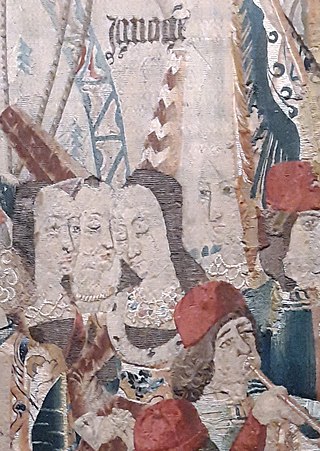
Innogen is a character in the Historia Regum Britanniae and subsequent medieval British pseudo-history. She was said to have been a Greek princess, the daughter of King Pandrasus, and to have become Britain's first Queen consort as the wife of Brutus of Troy, the purported first king of Britain who was said to have lived around the 12th century BC. Her sons Locrinus, Camber, and Albanactus went on to rule Loegria, Cambria, and Alba respectively.
In drama, particularly the tragedies of classical antiquity, the catastrophe is the final resolution in a poem or narrative plot, which unravels the intrigue and brings the piece to a close. In comedies, this may be a marriage between main characters; in tragedies, it may be the death of one or more main characters. It is the final part of a play, following the protasis, epitasis, and catastasis.
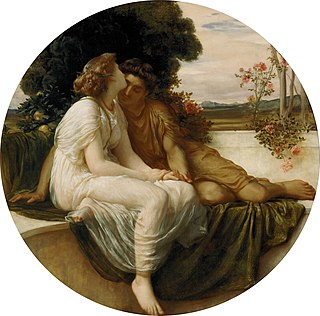
The poetry of Gaius Valerius Catullus was written towards the end of the Roman Republic. It describes the lifestyle of the poet and his friends, as well as, most famously, his love for the woman he calls Lesbia.

O tempora, o mores is a Latin phrase that translates literally as "Oh the times! Oh the customs!", first recorded to have been spoken by Cicero. A more natural, yet still quite literal, translation is "Oh what times! Oh what customs!"; a common idiomatic rendering in English is "Shame on this age and on its lost principles!", originated by the classicist Charles Duke Yonge. The original Latin phrase is often printed as O tempora! O mores!, with the addition of exclamation marks, which would not have been used in the Latin written in Cicero's day.

Drama is the specific mode of fiction represented in performance: a play, opera, mime, ballet, etc., performed in a theatre, or on radio or television. Considered as a genre of poetry in general, the dramatic mode has been contrasted with the epic and the lyrical modes ever since Aristotle's Poetics —the earliest work of dramatic theory.
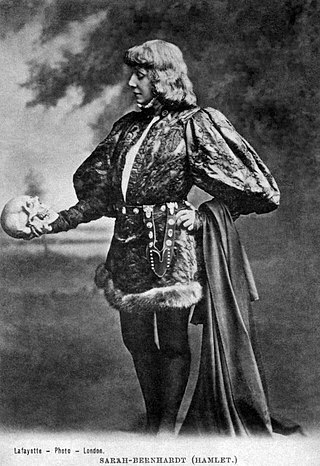
Theatre or theater is a collaborative form of performing art that uses live performers, usually actors or actresses, to present the experience of a real or imagined event before a live audience in a specific place, often a stage. The performers may communicate this experience to the audience through combinations of gesture, speech, song, music, and dance. It is the oldest form of drama, though live theatre has now been joined by modern recorded forms. Elements of art, such as painted scenery and stagecraft such as lighting are used to enhance the physicality, presence and immediacy of the experience. Places, normally buildings, where performances regularly take place are also called "theatres", as derived from the Ancient Greek θέατρον, itself from θεάομαι.
In classical drama, the epitasis is the main action of a play, in which the trials and tribulations of the main character increase and build toward a climax and dénouement. It is the third and central part when a play is analyzed into five separate parts: prologue, protasis, epitasis, catastasis and catastrophe.
References
- ↑
 This article incorporates text from a publication now in the public domain : Chambers, Ephraim, ed. (1728). "Catastasis". Cyclopædia, or an Universal Dictionary of Arts and Sciences (1st ed.). James and John Knapton, et al.
This article incorporates text from a publication now in the public domain : Chambers, Ephraim, ed. (1728). "Catastasis". Cyclopædia, or an Universal Dictionary of Arts and Sciences (1st ed.). James and John Knapton, et al. - ↑ Webster's Revised Unabridged Dictionary (1913)
- ↑ John Lewis Walker, Shakespeare and the Classical Tradition: An Annotated Bibliography, 1961-1991 (Taylor & Francis, 2002: ISBN 0-8240-6697-9), p. 639; Scaliger wrote: "catastasis est vigor ac status fabulae, in qua res miscetur in ea fortunae tempestate, in quam subducta est."
- ↑ Marvin T. Herrick, Comic Theory in the Sixteenth Century (University of Illinois Press, 1950), p. 119.
- ↑ Frank N. Magill, Critical Survey of Literary Theory: Authors, A-Sw (Salem Press, 1987: ISBN 0-89356-393-5), p. 1284.